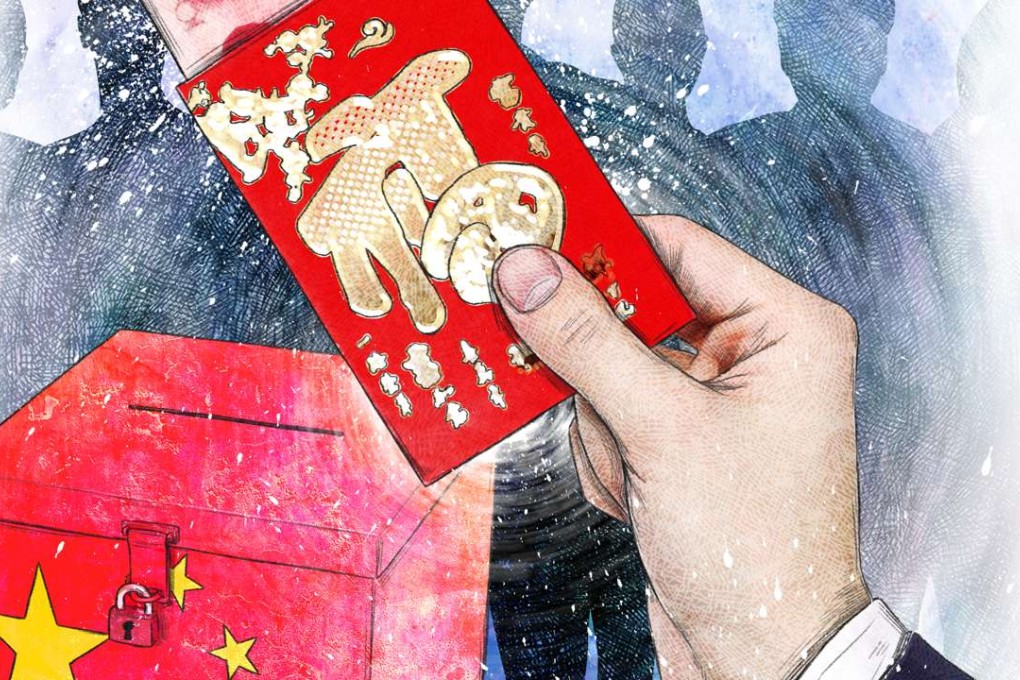Million-yuan bribes and money-back guarantees … how Chinese lawmakers bought their seats
Following exposure of huge electoral corruption in Liaoning, some fear similar practices involving up to tens of million of yuan could be happening elsewhere

Business executives seeking elected office in Liaoning province, the epicentre of an unprecedented vote-rigging scandal, were willing to make payments ranging from hundreds of yuan to millions, sources say.
Handing out cash to voters or contributing tens of millions of yuan to powerful political brokers were two ways they sought to game legislative elections.
Following the exposure of the biggest electoral fraud scandal since the founding of the People’s Republic of China in 1949, the sources said the corruption was so widespread that other legislators found it difficult to refuse bribes.
In the hope of winning a legislative seat, some may offer targeted electors red packets
The scandal has sparked concerns that similar under-the-table deals could be going on elsewhere across China as various local legislatures prepare for elections early next year.
“In the hope of winning a legislative seat, some may offer targeted electors red packets containing cash ranging from 500 to 5,000 yuan [HK$5,800] at banquets they organise,” said a mid-ranking official in Shenyang, the provincial capital. “Others may give huge amounts, ranging ... to tens of millions of yuan to brokers, usually political heavyweights such as the heads of regional legislatures, in the expectation of ‘good news’.”
The official, who declined to be identified, is familiar with the massive electoral fraud in Liaoning three years ago, which led to the expulsion last month of 45 of the province’s 102 National People’s Congress deputies and 454 of the 612 members of the provincial people’s congress.
On the mainland, lawmakers above the township and county levels are mostly elected by people’s congresses representing the administrative division or divisions immediately below. For example, a majority of NPC deputies are elected by provincial legislators, who in turn are elected by prefectural-level lawmakers.